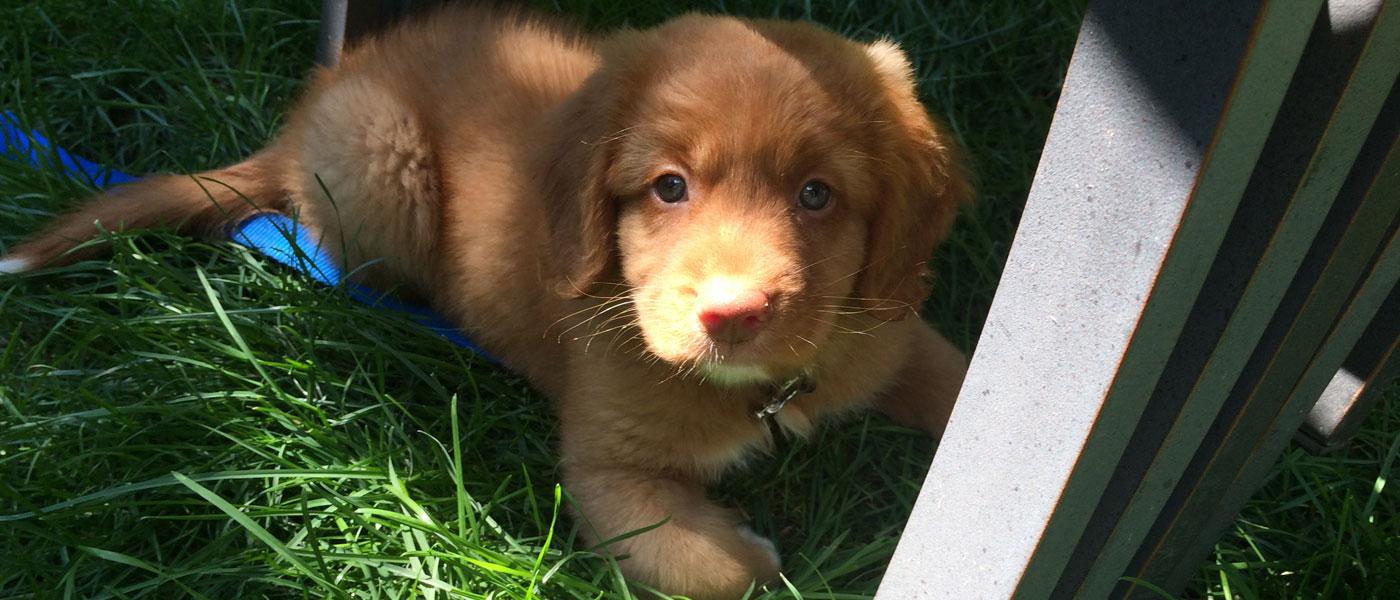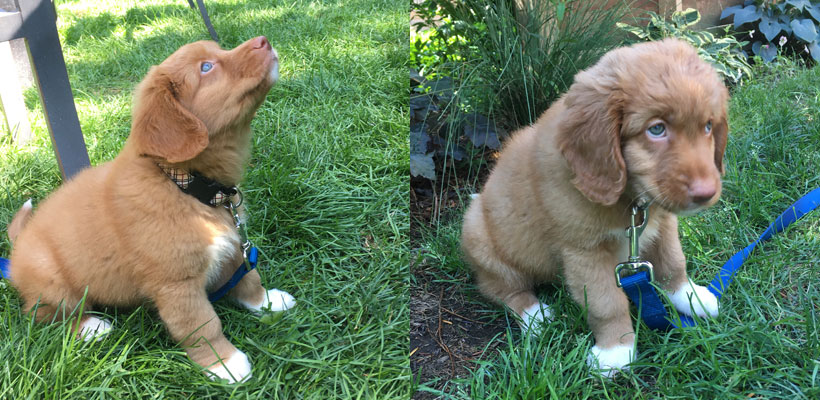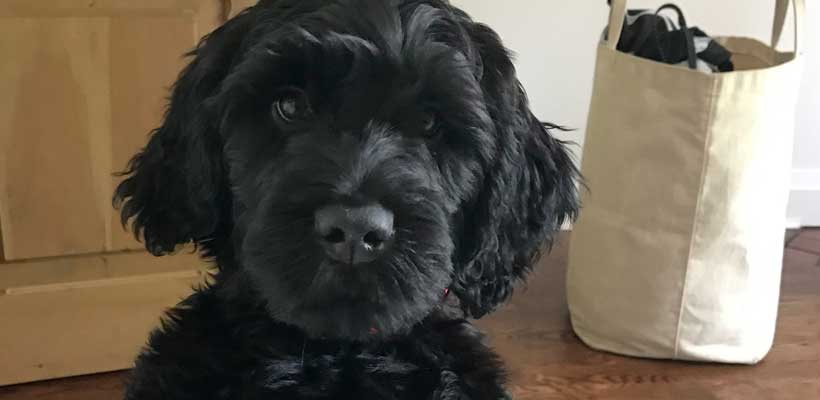
For pups 8 weeks to 18 months
Yay! You have a puppy. You probably have a lot of questions that you needed answered yesterday.
Did you know that by eight weeks of age your puppy is cognitively equipped to learn almost everything an adult dog can?
Of course, puppies have super short attention spans, lack muscle strength and coordination, and tend to trip over their own heads.
So they need age-appropriate coaching!

Most puppy training programs swamp you in a sea of details. In 'All Paws Up!' every module is organized around one core concept about dog-human interaction.
You don't need to master every detail, as long as you grasp the essentials.
Build great behaviour, lay the basis for secure attachment, and proof your dog against mishaps, mistakes, or fearful experiences.
Get the best framework for a lifetime of learning and living together.
In person or live on-line coaching
5 session package of 1:1 coaching includes:
$375 + HST
Nurture a love of learning in your puppy genius (yes, they are ALL brilliant!)
Behaviours taught include
See FAQ for more information
If by 'best' you mean most delicious (and high value for training), ask your pup.
Experiment to see which treats get the waggiest tail!
Cheese and hot dogs are often used, but these foods are high in sodium. Better alternatives are cooked chicken or beef, dried fish, or less rich, less salty treats like Beef Rollover.
Once your pup has learned basic behavioural skills, test which foods they like best by teaching "you choose".
https://www.whole-dog-journal.com/training/how-to-teach-a-you-choose-cue/
Possibly, but not yet! Puppies should be at least 16 weeks of age; size, temperament and a trained recall are crucial considerations. Dog parks have become a bit controversial. Sometimes it's difficult to decode more subtle aspects of your dog's body language; many people understand only retrospectively that their dog's experiences at the park were stressful! If you feel uncertain about taking your pup to the park, contact us.
Dog parks can be a wonderful and enriching experience for both you and your dog.

Do quick cleanups of urine and stools using an enzyme-based cleaner, like Nature's Miracle.
No need to reprimand or punish your puppy for indoor accidents; instead follow positive reinforcement house training protocols.
More information on housetraining your dog:
https://www.youtube.com/watch?v=gZ0XEr4DGfs
Routine helps give your pup a sense of predictability and therefore safety. But don't forget, change is part of life!
Moderate variations in routine can help your pup become an adaptable adult.
Mason amazed our whole family by teaching George to come to his name, and to 'touch', on his very first day home at seven weeks of age. From that day on Mason has taught all of us, canine and human, many new skills to help our puppy become a loving and well behaved member of our family. Her advice and loving attention have been indispensable.
- Jennifer, caretaker & companion to Sophie and George